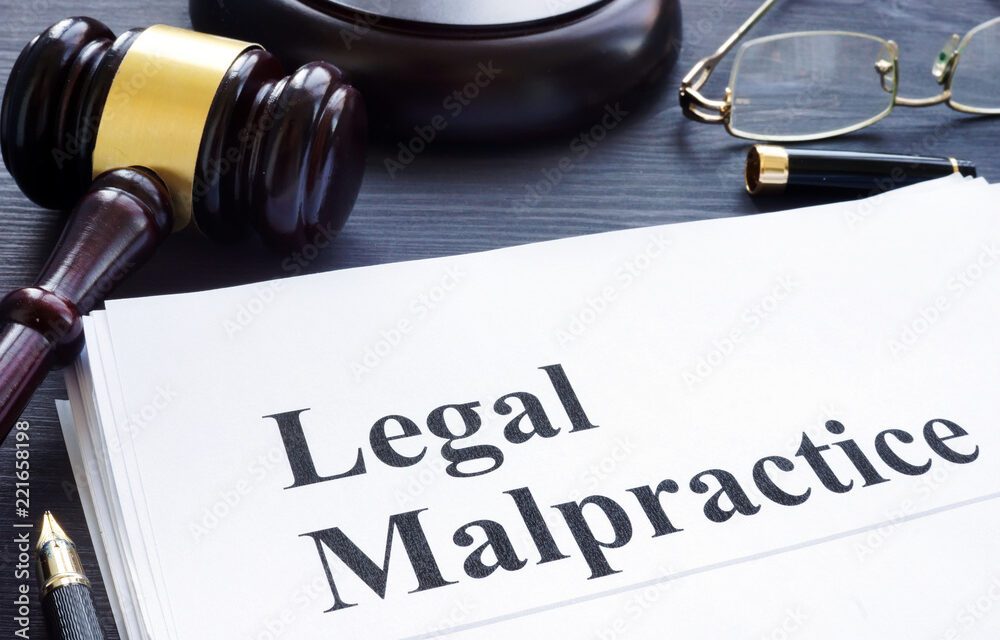LEGAL MALPRACTICE
Do you wonder why the recovery approach is called “legal malpractice,” rather than “lawyer malpractice” or “attorney malpractice?”
I think the reason is that persons other than lawyers can be sued for this and can suffer judgments against them. Why is that when only lawyers/attorneys can practice law? It’s because lawyers have people working for them who can be liable for poor performance or other violations of law within the scope of their work and can be individually liable. Moreover, they can be insureds under the lawyer’s malpractice policy, and–probably–they can have policies of their own. (I suspect that even someone who is practicing law without a license and thereby committing a crime in many states, including Texas, could have professional liability insurance, at least in theory.)
Now, does the term “legal malpractice” apply to a single cause of action? The answer is “Yes and No.” Why “Yes”?
The answer is “Yes” when we consider how the phrase is often ordinarily used. The answer is “No” when we look at how the term works within the law.
Yes
Often people, and even lawyers, speak and think about legal malpractice as a kind of negligence cause of action, where acceptable conduct is measured or determined by what a reasonable lawyer would do under the same or similar circumstances, where relevant circumstance might include a variety of things, for example, the location of the act or omission. Hence, when we think that way the phrase legal malpractice refers to a particular cause of action. Ordinary usage, however, is quite misleading, as well as, out-and-out wrong.
No
The fact is that the phrase “legal malpractice” encompasses several different causes of action, which clients can use to try and get judgments against their lawyers then the performance of those lawyers is legally unacceptable. Here is a list of at least some of them. Remember: they may apply to persons other than lawyers under some circumstances:
- Negligence act(s) or omission(s) by a lawyer, his/her corporate-type entity, and/or the relevant staff,
- Negligence by a non-lawyer posing as a lawyer,
- Breach of fiduciary duty by either or all of the above (henceforth on this list, I shall abbreviate all as “lawyer”),
- Breach of lawyer-client contract,
- Fraud, whether actual or constructive,
- Negligent misrepresentations to a client or in a way that reaches the client(s),
- Texas Deceptive Trade Practices Act violations
- Conversion of client property,
- Trespass on client property,
- Theft of client property under the Civil Practice and Remedies Code,
- Intentional infliction of emotional distress upon client(s),
- Violations of securities statutes, state or federal,
- Usury as to the client(s),
- Violations of lending laws, and
- Defamation as to client(s),
- Conspiracy.
Of course, most of these are hardly ever used to justify remedies, although often more than one of them is set forth in a single pleading, where it is intended that only one of them will be used. Then again, breach of fiduciary duty is often a good cause of action.
In any case, Texas law governing actionable lawyer poor performance suffers from the so-called “Antifracturing Rule,” where only one type of legal malpractice can be used against a lawyer in any single case. At least, in theory, more than one could be used against a different lawyer when they are both defendants in the same case. Thus negligence might be used against L#1 while fiduciary duties might be used against L#2. Courts have never so much as tried to apply the Anti-Fracturing Rule against the joint use of lawyer negligence and trespassing or theft by a lawyer.
So much for the disorganization of legal categories as applied to lawyers.
Michael Sean Quinn, Ph.D., J.D.
Texas State Bar No. 16432900
1300 West Lynn
Austin, Texas 78703
512.656.0503
mquinn@msqlaw.com





Recent Comments